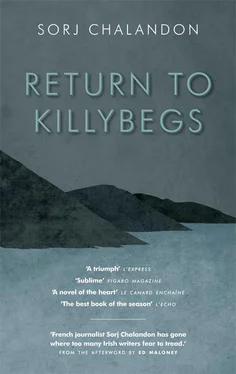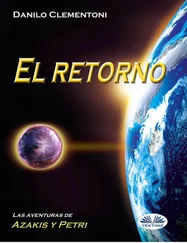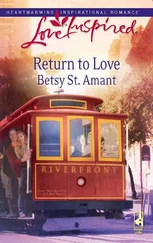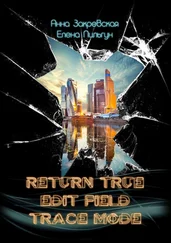Jim O’Leary was wary of military explosives that came from Hungary or Czechoslovakia. He was a peasant. He preferred the crude contraptions used in our campaigns. A big bag of weed killer, sugar, acid, a little of Ireland’s earth, soap flakes to infect the wounds, bolts, nails, and the job was done.
He didn’t have any qualms. No regrets, ever. But he followed one rule dictated by our command: no civilian victims. The IRA gave half an hour’s warning before detonating a bomb. Sometimes, though, that wasn’t enough. I was sitting with him one day in a Republican pub. A passer-by had just been killed on the street in broad daylight by one of our devices. The television was showing the images in a loop. The IRA had warned the police, but they hadn’t evacuated the street.
— Fucking Brits! cursed a young lad, putting his glass down.
— It’s the bomb that killed him, not the Brits, Jim spat back.
The youth wasn’t from the area. He was mouthing off the way someone does when they want to be accepted.
— Without the Brits, there wouldn’t have been any bomb, asshole! the stranger retorted.
— Wrong. Without the guy who made the bomb, there wouldn’t have been any bomb.
— The IRA doesn’t like being lectured! the stranger snapped back.
He got down from his barstool. He wanted Jim to explain himself. He didn’t get within ten metres. Two of our boys stopped him. One of them took him by the neck, made him sit down again, the other spoke into his ear, indicating Jim with a nod of his chin. Jim was drinking calmly, his eyes locked on the young man’s. The kid discovered who he was facing. He was turning white as a sheet, his mouth hanging open, his large body sagged.
When the operation was risky for civilians, Jim would remain until after the explosion. Once, he had cancelled a detonation because of a wedding. The patrol and the newly-weds passed a few metres from the remote-controlled bomb, the soldiers were sheltered by the cheerful bridal party of long dresses and suit jackets. Another time, with an IRA woman, he went back to find a bomb on the first floor of a Protestant den, where some Loyalist leaders were supposed to be gathering. Their meeting had been cancelled. He recovered the packet of Semtex that was hidden in the toilets. He was stopped outside. Eleven years in prison.
— You’re a killer, Jim O’Leary, the priest had said to him on his wedding day.
— You take care of my Mass, I’ll take care of your country, he had replied.
Since that day, in support of her man, Cathy had never again taken Communion.

When Fiona Phelan got on the bus, I followed her on board. She sat down the back, I took the seat next to her. She was surprised. The vehicle was almost empty. She gripped her bag on her knees. I stuck out my hand.
— Tyrone Meehan, I was with Aidan in a cell in Long Kesh.
Her face changed. The blood returned to it, along with her smile. She took my hand as though I was her son.
— Tyrone Meehan? You frightened me, I’m sorry.
She took a better look at me.
— What are you doing in Strabane?
She wanted me to come to her house, see her son, her husband. She was as moved as if it were a romantic encounter. I had to go back to Belfast that same night. I was getting off at the next stop.
— Don’t tell anyone you saw me.
— Even my husband?
— Not even him, no. Nobody. I’m sorry about this.
She was worried. The alarm that comes naturally to nationalist women up here.
— What’s going on?
Her hands in mine.
— Nothing. All is well. I just wanted to know if you’d received a message from your son towards the end of last year.
She looked at me, astonished. A message? The message! The one and only. She opened her bag, her red wallet. Carefully, she took out the words her son had written, protected in a plastic cover. She smiled sadly.
— Still, tearing the Bible… you shouldn’t do that.
How had she got the note? Around Christmas, a man rang at the iron gate and she had looked at him through the window. He was outside, something small in his hand. He signalled to her and then threw it over the gate. Then she had shouted.
— My other son went tearing out, my husband right behind him. I thought it was a Loyalist, a bomb. The guy shot off down the street.
On the grass was a wee silvery seal on a keyring with a zip on its belly. Her son picked it up with the poker. Then he bent over, took up the toy and opened it.
— When the paper fell into his hand, he squeezed his fist closed to hide it. And then he threw a worried glance at the street.
He had spent eight years in Crumlin prison. He let out a joyful cry when he recognized the note.
— He closed the door, slid the bolt, the chain, pulled the curtains. Then he asked me to hold out my hand.
— News from our Aidan, my son said. And that wee devil was laughing to see me cry.
And the man, the one who threw the toy, had she seen him?
— Yes. Very clearly, thanks to the street lamp. He was short, not too young, and bald. I even remember having said to myself that if he wished us ill, he would have hidden under a cap.
Popeye had kept his word.

— Meehan?
— Don’t speak, Popeye, don’t ask me anything. The IRA is going to kill you on Thursday.
— What are you talking about, Meehan?
He was repeating my name as though announcing an astonishing event. I knew he’d be there, at the fête of the Belfast Docks kennel club. Popeye had a brown and white fox terrier. The IRA had considered staging the operation right here, bombing his car at the Fountain Tavern, but the crowd was too dense. There were women, children, dogs. To shoot Ray Gleeson on his way to prison was to kill a screw. Jim O’Leary had backed out.
I repeated the threat to Popeye. He had been located, spied on, followed, photographed. It was to be Thursday.
— I’m going to have to report you to the police, Meehan.
I looked at him. He could do what he liked. He had the face of the woman attacked by the birds on that Hitchcock poster. He placed his hand on my arm.
— Why did you come to tell me this?
I looked at him. Popeye, his dog, this Sunday crowd. The announcements over the microphone, the dancehall music, the smell of kennels. I was betraying. I had just betrayed. I shook him off, shrugged helplessly. Why? For me. Certainly. To protect myself. A woman bumped into me, her poodle beribboned in the colours of the British flag. She apologized, smiled at me, said hello to Popeye. I didn’t belong here and yet it was my place as traitor.
I ran as far as the bus stop. I was panicking. This wasn’t my neighbourhood. All over the walls were frescoes painted in homage to Loyalist paramilitaries. The street curbs were painted blue, white and red. I was in their space. In the enemy’s sanctuary. I dreaded bumping into one of their men. Someone who would have engraved my face in his hateful memory. Worse again, one of my own. An IRA unit in operation.
— Hang on… surely that’s not Meehan, over on the footpath there?
To be seen here would have been the beginning of my end. But Popeye had done this. He had slipped into the heart of Strabane’s nationalist area to deliver Aidan’s letter, so I was carrying my message to the heart of his home. He thanked me without understanding what was going on. I recognized his expression. It was that of a prisoner.

On the morning of 8 July 1981 I was smoothly detained and taken in for questioning at a checkpoint on Castle Street, which leads from the Falls Road to the city centre. In front of the double chicanes, barriers and concrete blocks that were obstructing the road, the police were checking the Catholics. Women and children lined up to the left, men to the right, several dozen people waiting to raise their arms to be searched. In their sentry box, soldiers had their weapons pointed at the crowd, eyes to the gun sights of their assault rifles. They were tense. The death of Joe McDonnell at five that morning had enraged our localities. He was the eldest of the hunger strikers, dead aged thirty, after sixty-one days of fasting. When I got to the sentry box I threw everything I had in my pockets on the table. The peeler asked me my name, my address, where I was coming from and where I was going. Procedure. His colleague called headquarters.
Читать дальше













